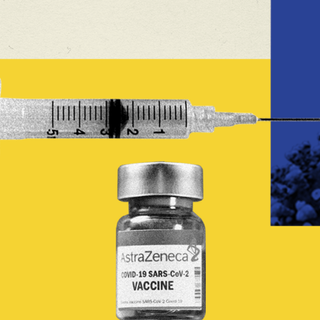In Untrending, we side-eye the latest fads so we know what we’re getting ourselves into — and what (if anything) we’re getting out of them.
A magic pill that can undo a bad day at work or PMS-related irritability seems like a godsend. Stores and brands like GOOP and Love Wellness package and sell them as friendly, encouraging little pills named #Mood or Run The World that promise wellness and productivity in the face of anxiety, stress, and bad days.
Ideally, a doctor prescribes medication for serious instances of depression, stress, anxiety, and premenstrual dysphoric disorder. Yet, pills that can enhance mood and do away with depressive symptoms and anxiousness can be bought off the counter. This is because the allopathic-looking supplements in question contain centuries-old ayurvedic and herbal treatments to improve mood-related symptoms.
Some common Ayurvedic ingredients used in mood supplements include St. John’s Wort, ashwagandha (Indian ginseng), gingko biloba, and kava. Of these, the most promising psychiatric treatments are St. John’s Wort and ashwagandha. St. John’s Wart is a plant that, according to researchers’ hypotheses, may help stimulate serotonin — quite like an anti-depressant. Several studies have shown St. John’s Wort to have some effect in easing moderate depression and mild PMS symptoms. Ashwagandha or (Indian ginseng), can reduce symptoms of stress and depression according to some research. This may be possible because the herb is linked to an increase in the level of acetylcholine — a neurotransmitter that controls bodily functions like heart rate, muscle contractions, and blood vessel dilations — which can aid mood stabilization.
With respect to the other two, Gingko biloba has shown a mild effect on anxiety, but overall research regarding its value is inconsistent. And finally, kava is a herb that contains substances called kavapyrones, which have an anxiolytic (alchohol-like) effect on the brain — but its efficacy as a means to reduce anxiety and depression is also questionable.
Related on The Swaddle:
Sugar Doesn’t Boost Your Mood; It Deteriorates It Further
So far, so average. But here’s what these nondescript herbal supplements and their pretty, friendly packaging fail to let you know: herbs are not chemical-free and harmless, which means ingesting them isn’t risk-free. Like allopathic medication, Ayurvedic medicines and herbal supplements work by reacting to chemicals within the body. Therefore, like allopathic medicines, Ayurvedic medicines and herbal supplements can have harmful side effects and cause adverse chemical reactions in the body if taken indiscriminately. Unlike allopathic medicine, Ayurvedic medicine and herbal supplements aren’t as concentrated nor as tried-and-tested — which means the potential for side effects isn’t as well-known or easy to predict or mitigate.
For example, St. John’s Wort is known to disrupt the effects of common medications like birth control pills, anti-depressants, HIV drugs, and more. This interaction can cause severe side effects ranging from agitation to diarrhea to insomnia. The U.S. Food and Drug Administration has warned people that kava consumption can cause severe liver damage, and the herb is banned in Great Britain, Canada, and Germany. Ashwagandha can lead to premature labor and fetal distress in pregnant women, and Gingko biloba can cause side effects like nausea, headaches, and stomach pain.
Bottom line? The ingredients in mood supplements might help with minor mood fluctuation, anxiousness, and depressive feelings, but they can also cause adverse side effects. And mood pills can be purchased without a prescription — and aren’t even considered medicine by regulators. Some don’t even have the required warning label to advise users about the possible side effects. Neither the pretty packaging nor the camaraderie-based branding can tell one when one should and shouldn’t take pills for mood-related wellness. Therefore, as in all cases, it’s best to consult a doctor who can inform about the same, and even suggest stronger medication if needed.




